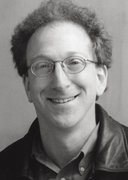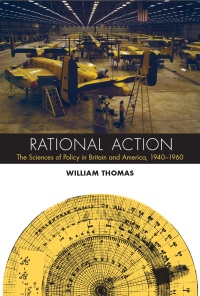Terminology: Art, Literary, and Music History; History of Philosophy; and History of Scientific Knowledge June 12, 2013
Posted by Will Thomas in Terminology.Tags: Andrew Warwick, David Hollinger, David Kaiser, Lev Tolstoy, T. S. Eliot
4 comments
When we start dividing up sub-categories within the history of thought or the history of ideas, we make distinctions of convenience: between explicit and tacit ideas, for instance, or between different genres of thought. These distinctions do not get at some internal essence of a form of thought. What they really do for us is provide us with provisional guidelines as to what forms of analysis are likely to lead to insights into things like: the genesis of an expression (“where did this weird idea come from?”), the circumstances bearing upon the form of expressions (“why did the author choose to publish that pamphlet at that time?”), and its relations with other expressions (“what did that film have to do with that book that appeared a couple of years earlier?”).
In my last post in this series, I marked out “intellectual history” as a sub-genre that can derive insight from the analysis of particular details of particular works, and that is centrally occupied with how works and their creators respond to prior and contemporaneous works. In this post I will look at some areas that fit in and around the sub-genre of intellectual history: art/literary/music history, the history of philosophy, and the history of scientific knowledge. As always, no historian need confine themselves to a particular genre, and the comments are open for clarification, dissent, and debate.
Alder on Art History and the History of “Episcience” June 9, 2013
Posted by Will Thomas in Terminology.Tags: Ken Alder, Thomas Kuhn
10 comments
My next post in my “Terminology” series will discuss art history and the history of science (among other areas) vis-à-vis the category of intellectual history. As these two areas are also discussed by Ken Alder in his recent Isis Focus essay, “The History of Science as Oxymoron: From Scientific Exceptionalism to Episcience,” (free) I thought it might be useful to discuss that essay first.
Alder’s piece is part of a Focus section on “The Future of the History of Science,” and, as such, contains arguments about where the history of science is and where it ought to go. (This sounds obvious, but Alder actually isn’t very explicit about these points, so we need to dig a bit to figure out his opinions.) Initially, he seems to believe that, intellectually, the history of science is exactly where it needs to be, and that what it needs to do is get out into the world. The problem is the world just doesn’t get what we do: people at parties don’t understand what the “history of science” is, and the Wikipedia History of Science page is a mess. Thus we need to “rebrand” (90).
Terminology: Intellectual History May 22, 2013
Posted by Will Thomas in Terminology.Tags: Friedrich Hayek
6 comments
This post continues my discussion of historiographical terminology. All definitions are ones I personally adhere to, but the idea is to open questions about useful distinctions and the terms used to describe them.
My previous post was on the “history of ideas,” which I take to be a very general category, applying to the ideas of populations of all sizes, and encompassing both explicitly held ideas, as well as those ideas that reside implicitly in texts and other works (e.g., worldviews, ideologies, customs, values, etc…). In this post, I’ll discuss a subgenre of the history of ideas, intellectual history.
Terminology: The History of Ideas May 19, 2013
Posted by Will Thomas in Terminology.Tags: Arthur Lovejoy, Carlo Ginzburg, Clifford Geertz, Friedrich Nietzsche, Karl Marx, Michel Foucault, Sigmund Freud
5 comments
One of the drums I like to beat is that historians’ methodological toolkit is well developed, but that we do not use this toolkit as cooperatively and as productively as we might. Part of making good use of tools is having good terminology, which helps us to understand and talk about what tools we have and what they’re good for, and how they can be used selectively and in chorus with each other. It also helps avoid needless disputes, where vague language leads to perceptions of wrong-headedness and naiveté. For example, I like to talk about the need for “synthesis,” which I take to mean an interrelating of historians’ works at the level of their particulars (rather than mere thematic similarity). For me, synthesis is a sign of a healthy historiography, but such calls could be dismissed by others as a call for “Grand Synthesis,” which all right-thinking historians have been taught to shun.
For this reason, I thought it might be useful to suggest some definitions, which I personally follow. In some cases, these are the result of extensive reflection, and, if you go into the archives of this blog, you will find I do not use the terms consistently. And, of course, I don’t suppose my terms are the final word on the subject. The best thing would be if they opened the door for debate and clarification. In this post, I want to talk about:
The History of Ideas


